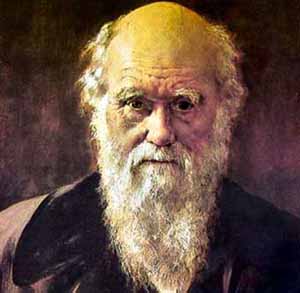Stephen Meyer’s Darwin’s Doubt
 The goal of Stephen Meyer’s recent book, Darwin’s Doubt, seems straightforward: clear an ecumenical path for the scientific viability of Intelligent Design. Of interest to me was Meyer’s detailing of allegedly non-Darwinian theories recently spawned from within the scientific establishment, the inevitable response – so the argument goes – to the still unexplained proliferation of new animal forms during the Cambrian period. Given Meyer’s humble underdog appeal, patient tutoring, and respect for the relevant sciences, I even found myself appreciative of his eventual philosophical argument for the classification of Intelligent Design as a ‘scientific’ theory.
The goal of Stephen Meyer’s recent book, Darwin’s Doubt, seems straightforward: clear an ecumenical path for the scientific viability of Intelligent Design. Of interest to me was Meyer’s detailing of allegedly non-Darwinian theories recently spawned from within the scientific establishment, the inevitable response – so the argument goes – to the still unexplained proliferation of new animal forms during the Cambrian period. Given Meyer’s humble underdog appeal, patient tutoring, and respect for the relevant sciences, I even found myself appreciative of his eventual philosophical argument for the classification of Intelligent Design as a ‘scientific’ theory.
But I wondered. What would the ‘other side’ have to say about all this? Gareth Cook’s review for the New Yorker satisfied some of my curiosity. Cook tells us that the “aim” of Meyer’s book is to “rekindle the ‘intelligent design’ movement” [all emphases here are mine]. The theory of intelligent design is “Probably best understood as the central element of a cunning legal argument,” for which the “engineers” of intelligent design “improved the disguise” of creation science. “Their agenda” was setback in 2005 when a federal judge declared intelligent design a “religion.” Darwin’s Doubt is “pseudoscience.” Meyer “appears” serious and reasonable. Those “who sense that science is a conspiracy against spiritual meaning will find the book a thrilling read.” The most “honest moments” come at the very end of the book, when Meyer offers a few personal reflections on meaning and the universe. “Here, at last, Meyer is not pretending to be a scientist.”
If Cook was after an accurate and informative book review, he failed. That may not have been his goal, however, in which case, he perhaps succeeded brilliantly. But I have saved Cook’s most striking comment for last:
Most absurd of all is the book’s stance on knowledge: if something cannot be fully explained by today’s science—and there is plenty about the Cambrian, and the universe, that cannot—then we should assume it is fundamentally beyond explanation, and therefore the work of a supreme deity.
This is decisively not the book’s explicit stance on knowledge. Meyer offers his theory as the ‘best explanation’ according to ecumenical criteria such as falsifiability and the ability to make predictions. I think the New Yorker owes a correction, and given the word “absurd,” perhaps also an apology.
If this is what the ‘other side’ has to say about Darwin’s Doubt, then I encourage everyone to buy Meyer’s book and read it.
But I pause. Crucial to Meyer’s argument is the satisfaction of this criterion: our scientific theories must appeal to causal connections observable in the world today. Meyer argues that good science can talk about design by non-physical Intelligence, even if we have no idea how this could work, since this is the explanation we give every day for the information-rich products of our own conscious, intentional acts. I do not think this argument works. (more…)


